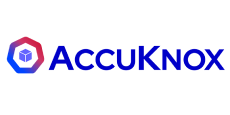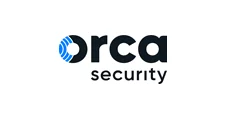AccuKnox (vs) Orca Security
Compelling Reasons to Choose AccuKnox over Orca
Unlike Orca, which lacks critical modules like Inline Prevention, AccuKnox offers a comprehensive Cloud Native Application Security Platform (CNAPP), that ensures 100% prevention from advanced "Zero-Day" attacks. Powered by inline runtime security, AccuKnox stops threats before they happen and takes action at cloud speed.
Get Your Free Copy Of
AppSec + CloudSec eBook 2025 Edition
Grab a Free Copy

Capabilities


Application Security Coverage
Registry scan (ECR, GCR, Nexus, Docker Hub, ACR, Harbor, Quay, jFrog, OpenShift, GAR)
Registry scanning is supported
Identify 3rd Party Dependencies and their Vulnerabilities (SCA), Scan for Vulnerability in Code (SAST) and Evaluate Applications for Vulnerabilities (DAST)
Provides SCA and SAST capabilities
Integrate with CI/CD for detecting secret leakage and Shift Left Automation with Prioritization
Secret scanning is supported and scanner integration into the CI CD pipeline is supported
Observability & Remediation
Application Behavior Analysis - Provides deep observability by leveraging eBPF
Uses eBPF-based technology for observability
Auto generation of policies based on the activity discovered inside containers to prevent anything that deviates from it
Uses rules that can be customized as per the requirements
Graphical view of identities in Kubernetes with customizable queries to define least permissive posture
Does not provide insights into the identities that are used inside kubernetes
Hardening and Prevention
Provides policies that harden the workloads and prevents violations before they happen
Uses runtime detection rules for risk discovery and requires action to be taken based on it
Zero day attack protection by defining the least permissive posture of the application. This will prevent any new activity that is unexpected in the application
Helps with zero-day preparedness by suggesting best practices and identifying malicious behavior
Proactive prevention of attacks using admission controllers and policies to deny access at the kernel layer using LSMs
Prevents deployment of vulnerable images but uses a detect and respond model at realtime
Deployment Models
Air-gapped and OnPrem Support
Does not support deployment in On Premise environment
Agent based protection and Agentless scanning support
Agentless first, supports agents for runtime security
Support for Hybrid environment of On Prem + Cloud
Provides security for only cloud environments
Open vs Proprietary
Uses KubeArmor - An open source CNCF Sandbox project
Orca uses patented sidescanning technology and proprietary agents
Ingests findings from open source tools
Has open sourced a few tools inside the platform but does not ingest from others
Integrations
Integrates with both Open source and Proprietary tools for security
Integrates with proprietary tools only
Future Proof Security
5G and IoT/Edge Security
Does not provide a specialized module for 5G and IoT security
Only CNAPP with out of the box Kubernetes Security via Posture Management (KSPM) & Identity Management (KIEM)
Supports Kubernetes Security
AI Security with ModelKnox (AI-SPM)
AI-SPM module to provide security for AI
Start with AccuKnox in 3 Steps
- Book a Call: Schedule time with our team to discuss your needs and goals.
- Choose a Deployment Option: We’ll assist you with the best fit.
- Dedicated POC: Deployment assistance, adding custom rules.

Researching about Orca Security alternatives?
Evaluate how AccuKnox stands apart from Orca security based on key features, pros and cons. We have compiled a list of solutions that leading organizations compare while considering AccuKnox as a potential Orca Security alternative. While analyzing AccuKnox and Orca Security side by side you can differentiate competencies, integration, deployment, service, support, and specific product capabilities that will influence your purchasing decision.
Trusted By Global Innovators

All Advanced Attacks are Runtime Attacks
Zero Trust Security
Code to Cloud
AppSec + CloudSec

Prevent attacks before they happen
Schedule 1:1 Demo




